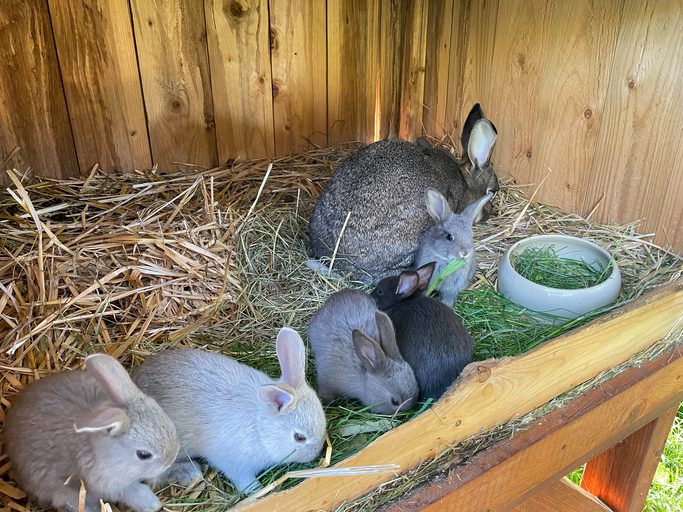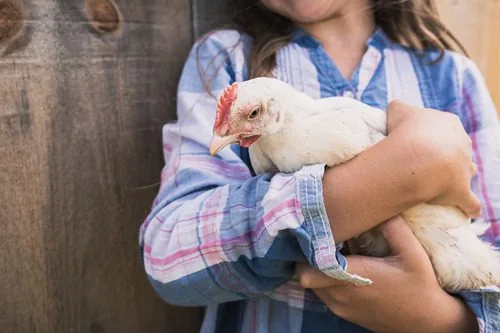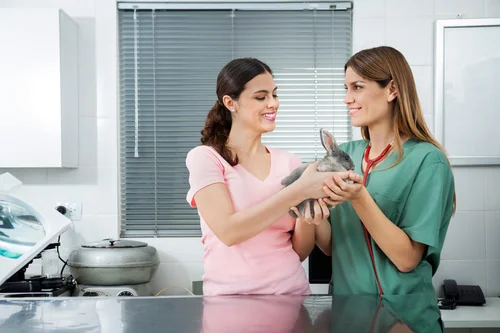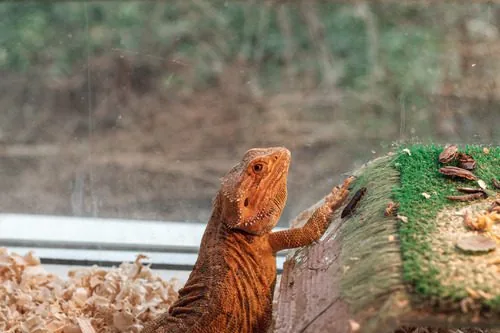The Importance of Rabbit Spay and Neuter
If you have a pet rabbit, spaying (ovariohysterectomy) or neutering (orchidectomy) her/him—meaning surgically removing its ability to procreate—is one of the best ways to ensure that it stays happy and healthy. Find out all the reasons why it’s important to spay or neuter your rabbit by reading Avian & Exotic Animal Hospital of Louisiana‘s article below.

Benefits of Spaying or Neutering Your Rabbit
Of course, no surgery comes without risk. But when it comes to spaying and neutering, the benefits are numerous, and the risks are miniscule when performed by a veterinarian experienced with rabbit anesthesia and surgery!
Perhaps the most obvious perk of this surgery is that your rabbit doesn’t have to go through the pain, risk of death, and tedious care of offspring.
Additionally, once a rabbit is spayed or neutered, the risk of mammary, uterine, and/or ovarian cancer in females or testicular cancer in males is removed. For example, intact (i.e., not spayed) female rabbits have up to a 65 percent chance of developing uterine adenocarcinoma as an adult. This cancer can be life threatening, so prevention by performing an ovariohysterectomy is extremely beneficial.
Moreover, spayed and neutered pets are generally more friendly and affectionate toward their owners and fellow animals. This is thought to be, at least in part, due to the fact that the rabbit’s altered hormonal response and deeply engrained desire to procreate are eliminated.
What’s the Right Age for a Rabbit to Be Spayed or Neutered?
When possible, rabbits should be spayed or neutered before concerns or problem behaviors associated have a chance to arise. So, your best chance at keeping your pet healthy is to get the surgery when they are young. And, in general, once your rabbit is around four – six months of age (when the females reach sexual maturity and the male’s testicles have dropped), they can safely have their surgical procedure. However, your exotic vet may advise you to wait longer due to the rabbit’s breed, size, or health.
If you became the parent of a rabbit later in life, or never considered spaying or neutering before your rabbit is already older, you will want to have a conversation with your veterinarian about the pros and cons of going through with the surgery (in terms of safety, increased longevity, etc.). Keep in mind that older animals will typically require more pre-surgical care. Pre-surgical bloodwork or x-rays may be required to assess your rabbit’s health status before the anesthetic and surgical procedure.
Questions to Ask Your Exotic Veterinarian
Once your rabbit has been approved for spaying or neutering surgery, there are several questions you should ask your veterinarian to make sure they are the right fit and that you are prepared. They include:
- How long have you been treating rabbits?
- On average, how many rabbits does your office see each year?
- How many spays/neuters do you perform on rabbits per year?
- What is your success rate?
- Should my rabbit fast before surgery?
- What are your anesthetic protocols?
- What precautions and supportive measures do you have in place before, during, and after the surgery?
- Can you describe the surgery to me?
- What is your post-operative plan?
What Happens During Surgery
Both spay and neuter surgeries will require your rabbit to be fully anesthetized. Once they are safely and successfully anesthetized, their vital signs (heart rate, respiratory rate/effort, blood pressure, temperature, etc.) will be closely monitored.
Spay
A spay (ovariohysterectomy) is done on female rabbits, and in order to perform that procedure, a vet must shave the rabbit’s abdomen, disinfect the skin, and make an incision on the abdomen. Once the abdomen is opened up, the uterus and ovaries are removed. To finish, several layers of sutures are used to close her abdominal wall and skin.
Neuter
A neuter (orchidectomy) is done on male rabbits, and it is often a quicker procedure than a spay. In order to perform a successful neuter, a rabbit must be shaved from around the scrotal sacs and penile area, their skin must be disinfected, and a surgical incision is made to expose the right and left testicle. From there, the testes are tied-off and removed, and then the resulting incision is sutured close.
It is important to note that males can store semen (sperm) in their bodies for up to three weeks after being neutered. They should be kept away from intact females during that time to avoid unwanted pregnancies.
Post-Op Considerations
Most rabbits recover well and without incident. It is wise to watch them closely, monitor their incisions, and ensure that they are eating and drinking. Remember, rabbits are prey animals, so they are wired to hide signs of their pain or discomfort. As such, you might not always be able to tell when they are in distress, so it’s important for you to provide them with safe and comfortable environments in order to make their healing as easy and efficient as possible. Contact your veterinary team if there are any concerns after surgery.
You should also note that spaying and neutering isn’t always an instantaneous fix when performed to correct unwanted behaviors. For example, hormone levels can take a while to level out, so undesirable patterns may persist for some time after surgery. Just try to stay as positive and patient as you can.
Our Metairie, LA, Vets Are Here for Your Rabbit’s Spay or Neuter
Spaying and neutering rabbits has proven to significantly improve their longevity, overall mood, connection with their owners, and many other aspects of life. However, all surgeries come with risk, so you should consult your vet to weigh them with all of the positive benefits.
Spaying and neutering rabbits has proven to significantly improve their longevity, overall mood, connection with their owners, and many other aspects of life. However, all surgeries come with risk, so you should consult your veterinarian to consult with them about the surgery and its benefits.
To schedule your rabbit’s exam, give Avian and Exotic Animal Hospital of Louisiana a call at (504) 455-6386.
Recent Posts
About Avian & Exotic Animal Hospital of Louisiana
Avian & Exotic Animal Hospital of Louisiana, formally West Esplanade Veterinary Clinic, is Louisiana’s only veterinarian that provides care exclusively to avian and exotic pets. From parrots to rabbits and ferrets to a wide variety of reptiles, as well as a multitude of small mammal exotic pets, we welcome them all to our practice!





